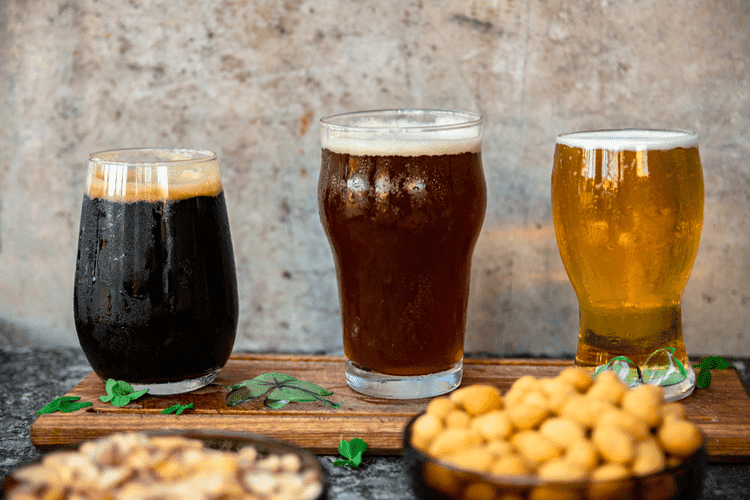Antisocial personality disorder and SUD were the most common co-occurring disorders. Unlike ptsd and alcohol abuse AUD, PTSD has only been included in the DSM since the third edition. Additionally, individuals with severe PTSD often have cognitive biases that may affect their accurate appraisal of alcohol-related problems. A core component of the disorder is a tendency to view experiences in a negative light and appraise situations as inherently dangerous (Vythilingam et al., 2007). Additionally, those with PTSD show memory bias towards trauma- and threat-related stimuli (Paunovic, Lundh & Öst, 2002). Thus, a person with higher PTSD symptoms may recall a relatively minor incident that occurred after a single drink (e.g. an argument) as more distressing or problematic than someone with lower levels of PTSD.
Healthy Coping Strategies for PTSD
Human studies have also shown that traumatic events can increase endorphin activity. For example, patients with PTSD will experience numbness or analgesia when simply exposed to reminders of the trauma (Pitman et al. 1990). We know the analgesia is attributable to a release of endorphins because drugs that block endorphins (opioid blockers) also block the analgesia in PTSD patients.
The Link Between PTSD and Alcohol Misuse
It may be especially challenging to mention treatment with a PTSD alcoholic spouse because they are a husband or wife, not their disease but by showing care and compassion, you could provide the motivation necessary to begin treatment. Integrated treatment that addresses both disorders is important to begin recovery.Treatment for co-occurring PTSD and alcohol use disordersmay include bothindividual therapy and group therapy. Medication is available to assist with PTSD symptoms that can cause setbacks like intrusive Drug rehabilitation nightmares.

Finding Strength and Hope: How to Support Families Dealing With Drug Addiction
However, self-medicating with alcohol only provides temporary relief and can ultimately worsen the symptoms of PTSD. Post-Traumatic Stress Disorder (PTSD) and alcohol abuse often occur together, leading to a dangerous cycle that intensifies both conditions. Understanding the relationship between these two issues is crucial to providing effective treatment and support for affected individuals. It is up to professionals to screen people in treatment for co-occurring disorders.
Do People Use Alcohol to Cope with PTSD?
- The fight, flight, or freeze response will kick in for virtually everyone during such an event, but most people recover from the fear and anxiety they experienced in that moment naturally over time.
- Start your recovery journey with peace of mind, knowing your care is covered.
- Reach out to mental health professionals specializing in trauma and addiction.
- Individuals with a strong support system, such as family and friends, are likely to have better outcomes.
Chronic substance use can cause “increased anxiety and arousal” and often correlates with poor coping skills as well. As a result, an individual may be more at risk for developing post-traumatic stress disorder after a traumatic event than they would have otherwise been. It’s common for people to increase their drinking after experiencing a traumatic event. The high rates of comorbidity between PTSD and AUD necessitate the question of why these disorders frequently co-occur. (See the box Functional Association Models for a summary of these models.) First, the self-medication hypothesis posits that individuals use alcohol to cope with PTSD symptoms, such that PTSD causally influences risk for AUD.
Being there for someone struggling with PTSD alcohol abuse can be emotionally challenging. Caregivers should prioritize their mental health by seeking support from friends, family, or counselors and setting boundaries to prevent burnout. Using drugs or alcohol can also impair people’s judgment, which can put them at risk for traumatic events like accidents or serious injuries. At Agape Treatment, we understand the complex relationship between PTSD and alcohol use.
Administering naltrexone as part of the treatment for patients with both PTSD and alcoholism may help break the addictive cycle. To understand how trauma can lead to emotional distress and affect alcohol consumption, it is important to understand the biochemical changes that occur during and after an experience of uncontrollable trauma. During uncontrollable trauma, an increase in endogenous opioids (endorphins) helps to numb the pain of the trauma. Following the trauma, however, a rebound endorphin withdrawal can contribute to the symptoms of emotional distress observed after a traumatic event as well as an increased desire to drink alcohol. The endorphin compensation hypothesis assumes that people use alcohol following a traumatic experience in an attempt to relieve the endorphin deficiency.
For instance, cognitive symptoms such as catastrophizing or negative rumination may explain the weaker association between consumption and problems for those with more severe PTSD, as discussed above. Alternatively, negative coping processes (e.g., avoidance and anger reactivity) that are common components of PTSD may be contributing to this effect by compounding or prolonging alcohol’s effects. Additionally, gender may also moderate the effect of alcohol consumption and PTSD symptoms on self-ratings of alcohol-related problems. Further research should include consideration of coping mechanisms in order to increase our understanding of alcohol use and treatment in the context of PTSD. Amplified alcohol-related problems on non-drinking and moderate-drinking days among those with more severe PTSD could be an important factor in treatment for individuals with comorbid PTSD and AUD.
The link between PTSD and alcohol-use disorders
A couples therapy called “project VALOR,” which stands for “veterans and loved ones readjusting,” involves 25 sessions of cognitive behavioral therapy for PTSD and alcohol misuse, enhanced for significant others. In the short term, alcohol might help with some common PTSD symptoms, like difficulties relaxing and trouble falling asleep. People with PTSD might turn to alcohol to help self-medicate their condition, but generally, PTSD and alcohol make a dangerous combination. Research finds that PTSD and drinking can lead to worse PTSD symptoms, relationship difficulties, other mental health issues, violence, and even suicide or death. If you or a loved one has developed PTSD after a traumatic event and also struggles with alcohol abuse, we’ve compiled some information about the relationship between PTSD and alcohol. We’ve also included some helpful information on how to get help for PTSD and alcohol abuse.

Co-Occurring Post-Traumatic Stress Disorder and Alcohol Use Disorder in U.S. Military and Veteran Populations
The association between AUD and PTSD has been elucidated due to the development of standardized assessments for the ECA using the DSM-III DIS. Assessments that followed have used the foundational structure and question format of the DIS to interview participants. They include the CIDI, AUDADIS, and, recently, the Psychiatric Research Interview for Substance and Mental Disorders. In fact, the DIS has continued to be revised based on the DSM and the International Classification of Diseases, making it one of the most durable standardized diagnostic assessments in the field.
